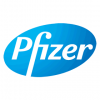
Merck (NYSE: MRK), known as MSD outside of the United States and Canada, and Eisai today provided an update on the Phase 3 LEAP-010 trial evaluating KEYTRUDA, Merck’s anti-PD-1 therapy, plus LENVIMA, the orally available multiple receptor tyrosine kinase inhibitor (TKI) discovered by Eisai, as a first-line treatment for patients with recurrent or metastatic head and neck squamous cell carcinoma (HNSCC) whose tumors express PD-L1. The primary endpoints of the study were overall survival (OS), progression-free survival (PFS), and objective response rate (ORR).
Two planned interim analyses were conducted by an independent Data Monitoring Committee (DMC) over an 11-month period. In the first analysis, KEYTRUDA plus LENVIMA showed a statistically significant improvement in PFS and ORR versus KEYTRUDA plus placebo. At the second analysis, KEYTRUDA plus LENVIMA did not demonstrate an improvement in OS compared to KEYTRUDA plus placebo, and the likelihood of reaching the protocol-specified threshold for statistical significance for OS was evaluated by Merck and Eisai and deemed to be low. Accordingly, the study will be closed, and the companies are informing investigators of this decision. The safety profile of KEYTRUDA plus LENVIMA was consistent with previously reported data on the combination. A full evaluation of the data from this study, including pre-planned subgroup analyses, is ongoing. The companies will work with investigators to share the results with the scientific community.
“With the LEAP-010 trial, we aimed to explore whether this combination could improve upon options already available with KEYTRUDA-based regimens for appropriate patients with metastatic or with unresectable, recurrent HNSCC,” said Dr. Gregory Lubiniecki, Vice President, Global Clinical Development, Merck Research Laboratories. “Although the progression-free survival results from this study were encouraging, unfortunately, the combination did not result in an overall survival benefit for patients. We will apply lessons from this trial to help continue advancing research of this combination.”
“While we were initially encouraged to see that KEYTRUDA plus LENVIMA met two of its three primary endpoints at an earlier interim analysis, unfortunately the combination did not meet the threshold for the third primary endpoint of overall survival,” said Corina Dutcus, M.D., Senior Vice President, Global Clinical Development, Oncology at Eisai Inc. “Our clinical program is designed to help accelerate our efforts to tackle difficult-to-treat, advanced cancers, and while the outcome may not always be what we anticipate, we know that this is part of clinical development, and we remain committed to scientific exploration in pursuit of improving care for patients.”
KEYTRUDA plus LENVIMA is approved in the U.S., the EU, Japan and other countries for the treatment of advanced renal cell carcinoma (RCC) and certain types of advanced endometrial carcinoma. Lenvatinib is marketed as KISPLYX® for advanced RCC in the EU. Merck and Eisai are studying the KEYTRUDA plus LENVIMA combination through the LEAP (LEnvatinib And Pembrolizumab) clinical program in various tumor types, including but not limited to endometrial carcinoma, hepatocellular carcinoma, non-small cell lung cancer, RCC, head and neck cancer, gastric cancer and esophageal cancer across multiple clinical trials. KEYTRUDA is currently approved as monotherapy and in combination regimens for appropriate patients with metastatic or with unresectable, recurrent HNSCC in the U.S., Europe, China, Japan and other countries around the world.
Results from the LEAP-010 trial do not affect the current approved indications for KEYTRUDA plus LENVIMA or other ongoing trials from the LEAP clinical program, including the ongoing LEAP-009 trial, evaluating KEYTRUDA in combination with LENVIMA versus chemotherapy in people living with recurrent or metastatic HNSCC who progressed after platinum therapy and immunotherapy.








































